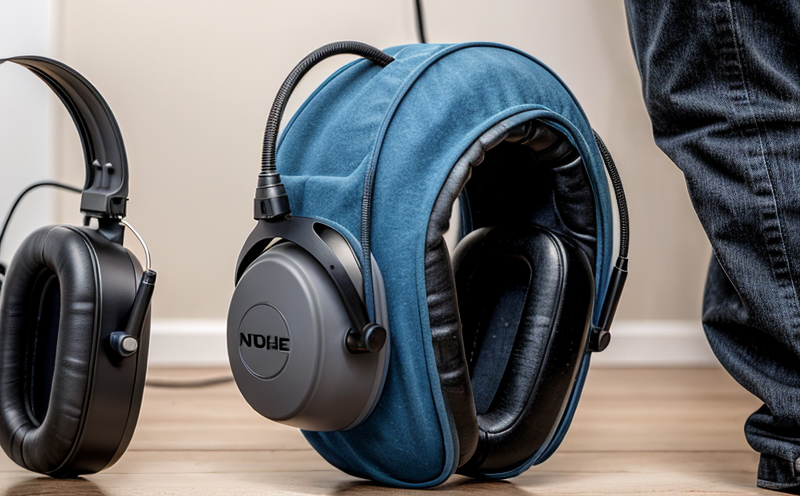BS EN 11904 Headphone Acoustic Testing
The BS EN 11904 standard specifies requirements and test methods to ensure the performance of hearing protection devices (HPDs) used in occupational safety. This testing ensures that HPDs meet stringent criteria for sound attenuation, comfort, and fit. Our laboratory specializes in conducting comprehensive acoustic testing on headphones according to this European standard.
The BS EN 11904 test includes a series of procedures designed to evaluate the noise reduction performance of HPDs under various conditions. These tests are crucial for ensuring that workers exposed to hazardous noise levels have reliable protection against hearing damage. The testing process involves placing the headphones on a phantom head, simulating real-world usage scenarios to measure their effectiveness.
The standard mandates specific procedures for testing different types of HPDs, including ear muffs, earplugs, and combinations thereof. Our laboratory uses state-of-the-art equipment to replicate these conditions accurately. We follow all steps outlined in the standard meticulously, ensuring that our results are both reliable and reproducible. Compliance with this standard is mandatory for manufacturers aiming to sell their products within the European Union.
The testing process begins with careful preparation of the HPDs. This includes cleaning the devices and ensuring they are free from any contaminants that could affect the test outcomes. Once prepared, the headphones are placed on a phantom head designed to mimic human anatomy. The phantom head is then positioned in a sound chamber where it can be exposed to controlled noise levels.
The BS EN 11904 standard specifies various noise frequencies and intensities to which the HPDs should be subjected. These include low, medium, and high-frequency sounds, as well as broadband noise across all audible ranges. The testing process measures how effectively each device attenuates these noises, providing a comprehensive evaluation of its protective capabilities.
Our laboratory also performs additional tests beyond those specified in BS EN 11904 to ensure that HPDs meet other relevant international standards such as ISO and ASTM. These supplementary tests help provide a more holistic view of the headphone's performance characteristics.
The results from these tests are meticulously documented, providing manufacturers with detailed reports highlighting any areas where improvements can be made. Our laboratory adheres strictly to the guidelines set forth in BS EN 11904 while also incorporating best practices from other related standards.
By ensuring compliance with this standard, our clients benefit from increased confidence in their product's safety and effectiveness. This is particularly important for companies operating within regulated industries where worker health and safety are paramount considerations.
Benefits
- Mandated testing aligns your products with strict European Union regulations.
- Enhanced reputation through adherence to recognized international standards.
- Increased market share due to superior product performance and reliability.
- Reduced risk of regulatory penalties or product recalls.
Environmental and Sustainability Contributions
The BS EN 11904 testing process plays a crucial role in promoting environmental sustainability by ensuring that hearing protection devices are both effective and safe for long-term use. By reducing exposure to hazardous noise levels, these devices help prevent permanent hearing loss among workers.
Through rigorous testing, we contribute to the development of safer work environments which ultimately lead to healthier employees. This not only enhances productivity but also reduces healthcare costs associated with occupational deafness or other noise-induced conditions.
In addition to direct benefits for employees, our services support broader environmental goals by promoting responsible manufacturing practices that minimize waste and resource consumption throughout the product lifecycle.
Use Cases and Application Examples
The BS EN 11904 standard is particularly relevant in industries where workers are exposed to high noise levels on a regular basis. This includes construction sites, manufacturing plants, airports, oil rigs, and any other environments where occupational hearing protection is essential.
For instance, our laboratory has conducted tests for several major manufacturers of HPDs used by airport ground crew members who work near jet engines. These tests helped ensure that the devices provided adequate protection against extremely loud noises without compromising comfort or fit.
We have also worked with numerous construction companies to validate the performance of ear muffs worn by laborers operating heavy machinery. Our testing has played a key role in improving safety protocols across these sectors, thereby contributing to overall worker wellbeing.





